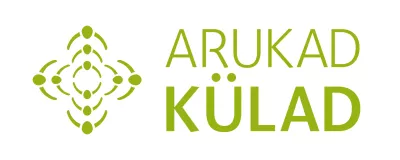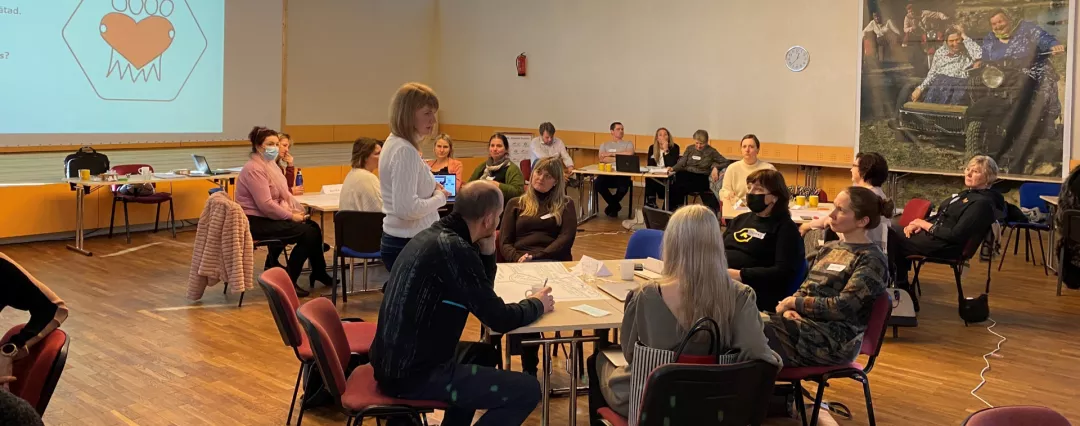General information
RDP Priority
- P6. Social inclusion and local development
RDP Focus Area
- 6B: Local development
RDP Measure
- M19: LEADER/CLLD
Beneficiary type
- Local Action Group
Summary
The National Smart Villages Programme was promoted by the LAG Tartu Rural Development Association in Estonia. It was designed as a nationwide LEADER cooperation project that provided support and training activities to villages interested in developing Smart Village strategies and innovative pilot activities. As an added value, the project created a network of Estonian Smart Villages to increase the capacity and awareness of local communities of their development potential. In addition, links were set up with the European Smart Villages Network Smart Rural 21.
A total of 13 Local Action Groups participated in the National Smart Villages Programme, involving twenty-four villages/regions from across Estonia. It provided the participating LAGs with valuable experience on how to implement the concept of Smart Villages at the local level. Follow-up activities were planned through their LEADER - Local Development Strategies.
Results
- 24 Smart Village strategies were developed across different regions of Estonia.
- 24 innovative pilot actions were implemented on different topics.
- 13 LEADER local action groups gained new experience in developing Smart Villages.

Promoter
LAG Tartu Rural Development Association
Funding
Total budget: 251 928 (EUR)
EAFRD: 160 273 (EUR)
National/Regional: 40 069 (EUR)
Private/own: 51 586 (EUR)
Resources
Documents
Context
In 2020, the European-funded "Smart Rural 21" initiative called for the participation of villages across Europe. In response to this opportunity, a working group was formed in Estonia to select those villages best suited for participation. The working group members included representatives from the Ministry of Rural Affairs, Ministry of Social Affairs, Estonian Rural Network, Village movement “Kodukant”, the Estonian Leader Union, and the Union of Estonian Towns and Municipalities. Many villages came forward across Estonia and were keen to participate in the project. However, only one village, called Virtsu, was selected. Nevertheless, the positive response to the call showed that many local communities were interested in the Smart Village topic, and this prompted the Estonian LEADER LAGs and the working group to come up with the idea of designing a Smart Village project themselves for Estonia. In this way, they could respond to the existing demand expressed by communities, and design relevant support activities to create Smart Village strategies and activities. The project was, therefore, inspired by the "Smart Rural 21" initiative, and adapted to the Estonian context. Estonia has a long tradition in the village movement, but the concept of a Smart Village sounded innovative and brought new energy.
Objectives
The main objectives of the nationwide cooperative project were to support each participating village in their preparation of a Smart Village strategy, and to assist them in the implementation of relevant pilot actions. The project also sought to establish a national Smart Villages Network in Estonia, and to create close linkages with the European-wide Smart Rural 21 network. To enhance public awareness of and know-how about Smart Villages, the project aimed to promote the Smart Village strategies and the results of the various pilot actions through a range of communication activities targeted at governmental institutions and other Estonian villages. Finally, the ambition was that the participating LEADER LAGs would gain relevant experience on how to implement the Smart Village concept at the local level.
Activities
The project began with a cooperation agreement being signed between 13 partners at the beginning of 2021. This was followed by the selection of 1-3 villages/regions from each Estonian LAG region that would participate in the project. A survey was conducted to identify their specific needs and identify which skills would need enhancing. The results of the survey informed the development of a training programme that contained six training modules on various topics.
A pool of 13 specialists (representatives of local governments and leaders of cooperation networks related to rural areas) were selected to act as mentors. Their role was to assist the villages in the process of shaping their Smart Village strategy. Each village could choose the most suitable mentor, according to their village's characteristics, focuses, etc. Five working days of mentoring support was made available for each village.
The first year also saw the beginning of communication activities, including press releases, social media, website, etc.
Following the selection of 24 participating villages, an introductory event, including a first meeting and training, was conducted in June 2021. This was followed by study trips for the participating villages across Estonia to learn about inspiring projects and initiatives. Further training sessions on various topics were delivered in the second half of 2021.
In 2022, the participants completed their individual Smart Village strategies. Subsequently, relevant pilot activities were planned and implemented, whereby each village carried out at least one pilot activity. A grant of EUR 5 000 was available for each. Accompanying project activities included a mini-hackathon and a media campaign. This latter included articles describing the strategy process and pilot activities in municipal newspapers and the national rural newspaper.
In June 2022, a seminar summarised the strategy creation process and provided the opportunity to reflect on the state of the project activities at mid-term. Parallel study trips to Austria (Stanz) and Denmark (Torup) were completed later in the year. First, pilot activities commenced. A further seminar summarised the project, with a focus on sharing the experiences and lessons learned by the participating villages/regions and looking to future plans.
The final year of the project (2023) involved the continuation of the 24 pilot actions, and a final workshop focusing on the results and conclusions of the project in May 2023. In addition, a video was made about the project, presenting the results achieved.
Main results
The following quantitative and qualitative benefits were achieved:
- 24 Smart Village strategies were developed across different regions of Estonia.
- 24 innovative pilot actions were implemented on different topics, for example, a virtual community app, village website, development of a community school, etc.
- 13 LEADER local action groups gained new experience in developing Smart Villages.
- 28 days of events, meetings and trainings contributed positively to the capacity and knowledge of local stakeholders to plan and implement innovative actions.
- 55 articles, news, Facebook posts, and a national campaign promoting the smart villages approach and smart solutions in local villages were produced.
- 24 communities gained experience and built their capacities in the Smart Village concept and in local development. This included knowledge of relevant funding mechanisms to support the development of innovative solutions.
- The skills of LAGs to involve community members and other partners improved. For example, all the participating villages involved young people in the process of drawing up a Smart Village strategy. Through this, community empowerment and local-level democracy increased in the participating rural areas.
- Through communication activities, the Smart Villages concept became more visible and accessible to the public, and has inspired other villages.
- Cooperation and networking between the different villages strengthened, which created a good basis for further cooperation activities and innovations in future.
Key lessons
- Participation in the project gave the villages new energy and the will to act. Innovation became ‘natural’ during the process, becoming an integral part of development.
- The local community must be involved from the beginning to be most effective. Surprisingly, people were immediately ready to come along to project meetings, and there was much interest throughout the communities involved.
- Pay extra attention to innovative thinking and carry out special activities (such as trainings or brainstorming sessions) in order to help generate innovative ideas.
- International cooperation at the very beginning, including sharing good examples and study tours, are very important and effective actions.
- As a result of the COVID-19 crisis, face-to-face gatherings were limited. For meetings and collecting information, e-solutions were often used.
Through the approach of a Smart Village and the involvement of the community, new values and innovative solutions are jointly created, and the development of the village is looked at strategically and long-term. A Smart Village means using the community's wisdom to its full potential.
